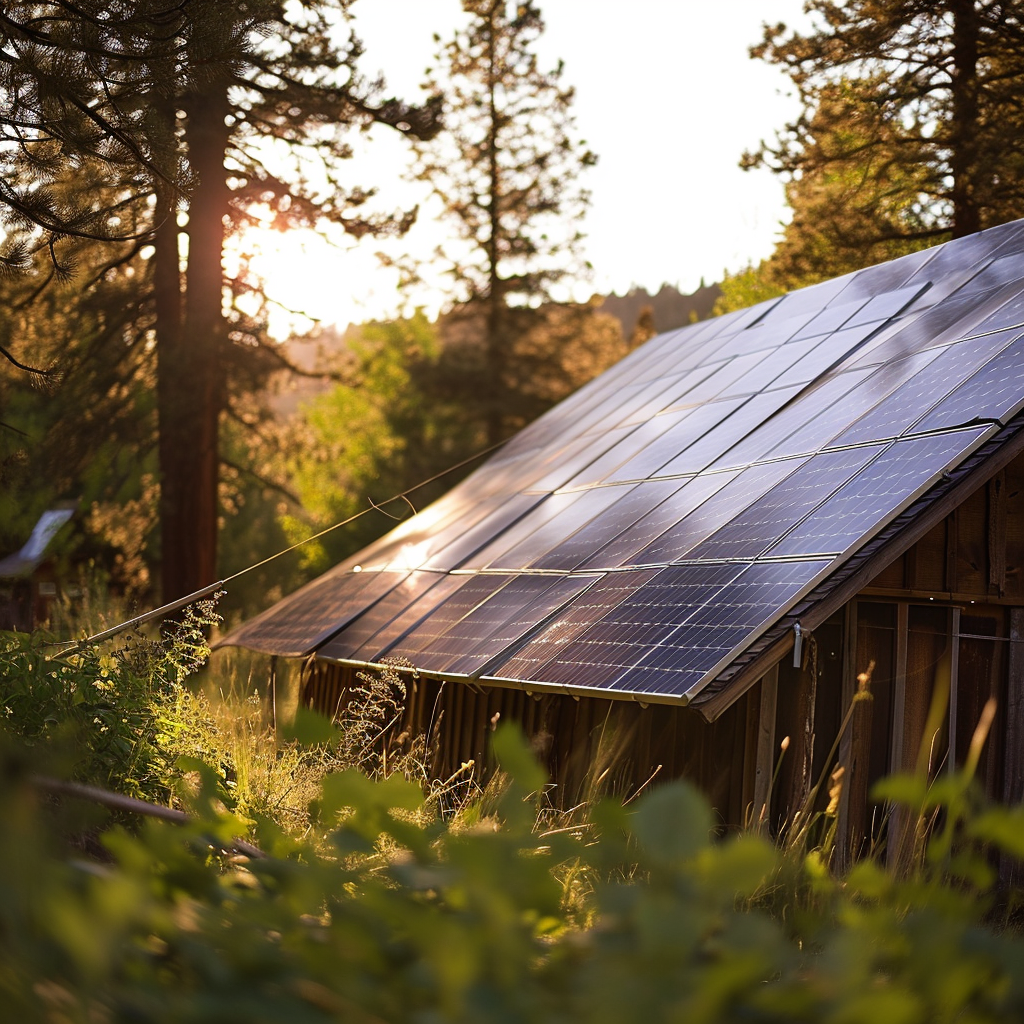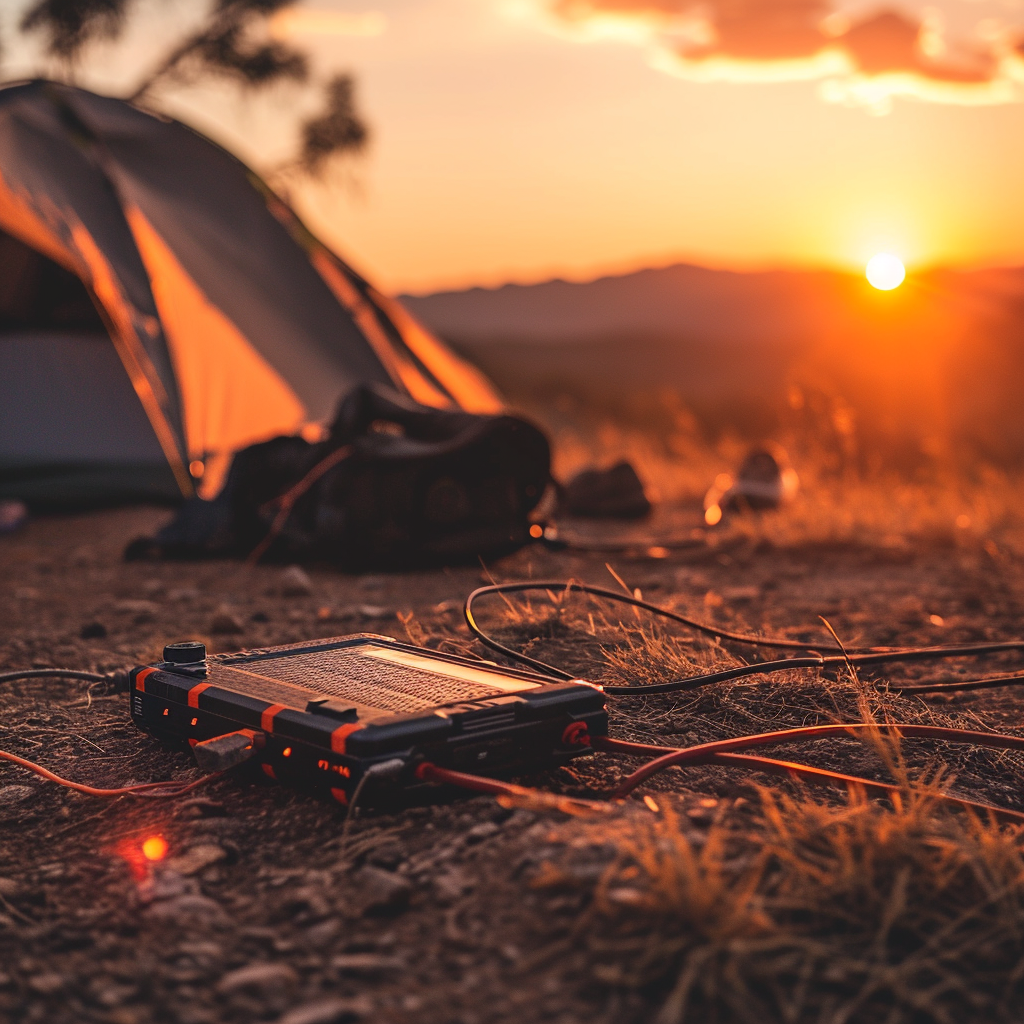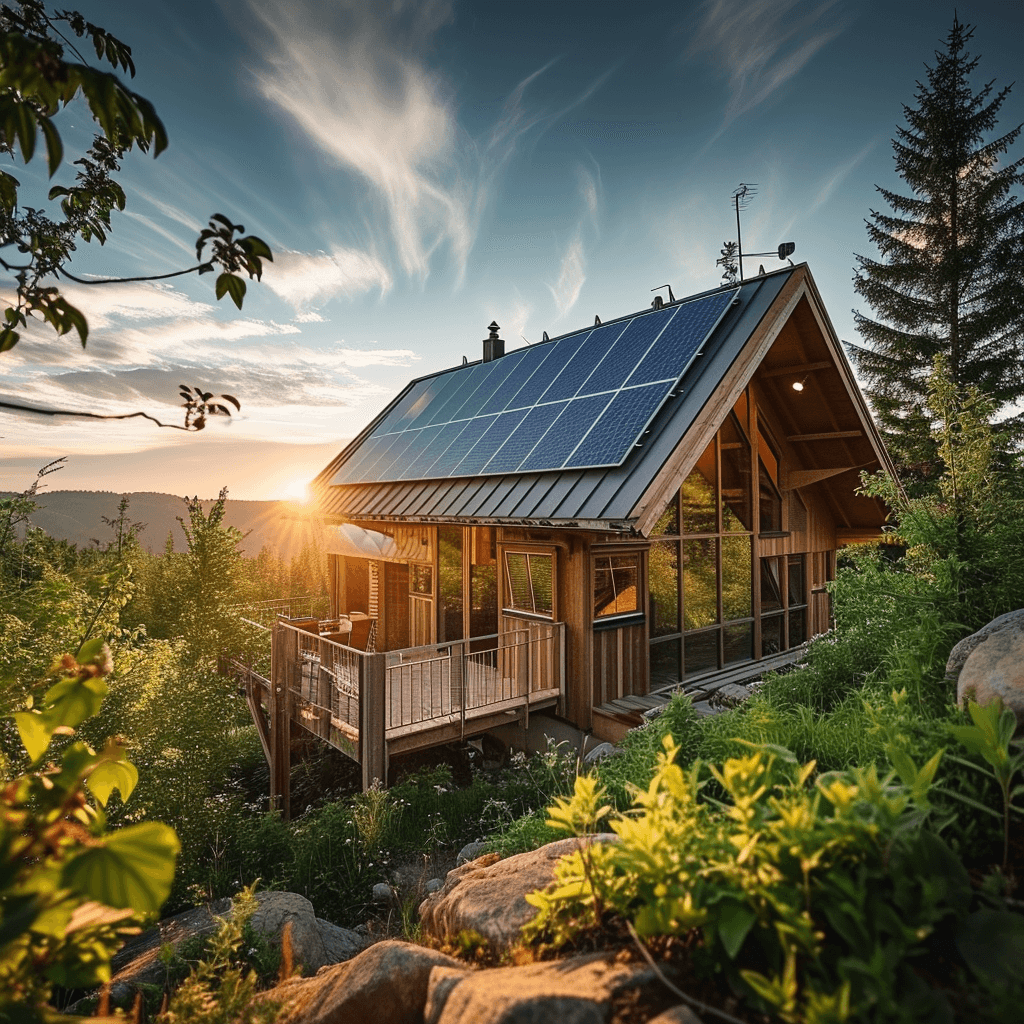Living off the grid can be a fulfilling and adventurous lifestyle choice, but it also comes with a unique set of challenges, the most crucial being energy self-sufficiency. With limited or no access to the traditional power grid, off-grid homeowners need to find alternative energy solutions to meet their electricity needs. So the question arises What Are The Best Energy Solutions For Off-grid Homes? In this article, I will explore some of the best energy solutions available for off-grid homes, ranging from solar power to wind turbines and beyond, to help you make an informed and sustainable choice for your off-grid adventure.
Solar Power
Photovoltaic (PV) Systems
When it comes to off-grid living, solar power is one of the most popular and reliable energy solutions available. Photovoltaic (PV) systems, also known as solar panel systems, harness the power of the sun to generate electricity. These systems consist of solar panels, which are typically placed on the roof or mounted on the ground, and an inverter that converts the DC power produced by the panels into AC power that can be used to power appliances and devices.
Solar power has several advantages for off-grid homes, including its renewable and sustainable nature, low maintenance requirements, and silent operation. However, it is important to note that the initial cost of installing a solar panel system can be quite high. Nevertheless, many homeowners find that the long-term energy savings and the ability to live independently from the grid make solar power a worthwhile investment.
Solar Water Heating Systems
In addition to generating electricity, solar power can also be used to heat water in off-grid homes. Solar water heating systems utilize solar thermal collectors to capture the sun’s heat and transfer it to water. These systems can be an excellent choice for off-grid homes as they significantly reduce the reliance on traditional water heating methods. Solar water heating systems can provide hot water for various household needs, such as showers, laundry, and dishwashing. They are particularly effective in sunny climates and can be combined with other renewable energy sources to create a comprehensive off-grid energy solution.
Wind Power
Small Wind Turbines
While solar power is a popular choice for off-grid homes, wind power offers another viable option. Small wind turbines, also known as residential wind turbines, can be installed on or near the property to generate electricity. These turbines use the power of the wind to rotate their blades and generate kinetic energy, which is then converted into electrical energy. Small wind turbines are suitable for off-grid homes located in areas with consistent and strong winds, typically rural or coastal regions. They can be an excellent addition to a renewable energy system, especially when combined with solar panels, as they can generate power even during times of low solar activity.
Vertical Axis Wind Turbines
For off-grid homeowners looking for an alternative to traditional horizontal axis wind turbines, vertical axis wind turbines (VAWTs) may be worth considering. VAWTs have their blades arranged vertically around a central axis, allowing them to capture wind from any direction. This design eliminates the need for complicated wind-tracking systems, making VAWTs suitable for off-grid homes in areas with turbulent wind patterns. Additionally, VAWTs have a smaller footprint and are generally quieter compared to horizontal axis turbines. However, it is important to note that VAWTs may have lower efficiency compared to their horizontal counterparts, so careful consideration of wind conditions and energy needs is crucial when opting for this type of wind turbine.
Hydroelectric Power
Micro Hydro Systems
For off-grid homes situated near running water sources such as rivers or streams, micro hydro systems present an efficient and reliable energy solution. Micro hydro systems harness the power of moving water to generate electricity. These systems typically consist of a water turbine, which is connected to a generator, and the necessary infrastructure to divert water from the source into the system. Micro hydro systems can provide a consistent and continuous energy supply, making them an excellent choice for off-grid homes in remote locations. However, the feasibility of installing a micro hydro system depends on the availability and flow rate of the water source, as well as any environmental and legal considerations.
Biomass Energy
Wood Stoves and Pellet Stoves
Biomass energy is derived from organic materials, such as wood, and can be a viable energy solution for off-grid homes. Wood stoves and pellet stoves are common biomass heating systems used to provide warmth and heat water. These stoves burn wood or wood pellets, releasing heat that can be used for space heating or water heating purposes. Wood stoves are a traditional option, while pellet stoves offer greater convenience and control. Both types of stoves can provide reliable heating, especially in colder climates where alternative energy sources may be less efficient. However, it is important to consider the availability of sustainably sourced wood or pellets and the cost of fuel when opting for biomass energy.
Biogas Systems
Biogas systems convert organic waste, such as food scraps and animal manure, into a renewable source of energy. These systems use a process called anaerobic digestion, in which microorganisms break down the organic matter and produce biogas as a byproduct. Biogas can be used for cooking, lighting, and even electricity generation when combined with a biogas generator. Biogas systems offer a sustainable way to produce and utilize energy from organic waste, making them an attractive option for off-grid homes that prioritize environmental sustainability. However, the installation and maintenance of biogas systems can be complex, requiring proper waste management and careful monitoring of the anaerobic digestion process.
Geothermal Energy
Ground Source Heat Pumps
Geothermal energy utilizes the natural heat stored within the Earth to provide heating, cooling, and hot water for buildings. Ground source heat pumps (GSHPs), also known as geothermal heat pumps, are the most common form of geothermal energy system for off-grid homes. GSHPs work by transferring heat between the ground and the indoor environment, providing both heating and cooling functions.
These systems use a series of pipes buried underground to extract or deposit heat, and an electric compressor to enhance the process. GSHPs offer high energy efficiency and can significantly reduce heating and cooling costs, making them an excellent choice for off-grid homes. However, the installation of GSHPs requires proper site assessment and may involve upfront costs, including drilling or excavation.
Propane and Natural Gas
Propane Systems
Propane is a versatile and readily available fuel source that can be used for various applications in off-grid homes. Propane systems can power appliances such as stoves, ovens, water heaters, and even generators. Propane is stored in tanks or cylinders on the property and can be easily refilled when needed. Propane systems offer a reliable and convenient source of energy, especially in areas where natural gas infrastructure is not accessible. However, it is important to closely monitor the propane supply to avoid unexpected shortages, and regular maintenance of the system is required to ensure optimal performance and safety.
Natural Gas Generators
For off-grid homes with access to a natural gas supply, natural gas generators can provide a reliable backup power source. Natural gas generators use the combustion of natural gas to generate electricity during power outages or when the primary renewable energy systems are unable to meet the energy demand. These generators are connected to the natural gas pipeline system, eliminating the need for fuel storage. Natural gas generators offer a cost-effective and efficient solution for off-grid homeowners who want a backup power source without the logistical challenges of fuel storage and refilling. However, it is crucial to ensure the availability and reliability of the natural gas supply in the area before relying solely on this energy solution.

Hybrid Systems
Solar-Wind Hybrid Systems
Hybrid energy systems combine multiple renewable energy sources to provide a more consistent and reliable energy supply. Solar-wind hybrid systems are a popular choice for off-grid homes as they combine the advantages of solar power and wind power, allowing homeowners to benefit from both energy sources. These systems utilize solar panels and wind turbines to generate electricity, maximizing energy production throughout the day and night. Solar-wind hybrid systems are particularly effective in areas with ample sun and wind resources, providing homeowners with a more balanced energy solution and reducing reliance on a single renewable energy source.
Solar-Hydro Hybrid Systems
For off-grid homes located near water sources, solar-hydro hybrid systems can be a promising energy solution. By combining solar power and hydroelectric power, homeowners can take advantage of both energy sources to generate electricity. In this hybrid system, solar panels and a micro hydro system work together to produce power, with the solar panels compensating for any energy shortfall during periods of low water flow. Solar-hydro hybrid systems provide a more stable and reliable energy supply, especially in regions with varying weather conditions. This combination also offers homeowners greater flexibility and energy independence, ensuring continuous power even during changing seasons.
Energy Storage
Batteries
Energy storage is an essential component of off-grid energy systems as it allows homeowners to store excess energy for later use. Batteries are the most common form of energy storage used in off-grid homes. These batteries store the excess energy generated by renewable energy systems, such as solar panels or wind turbines, and release it when the demand exceeds the energy production. Batteries can provide a consistent power supply even during periods of low energy production or when the renewable energy sources are not available, such as during nighttime or cloudy days. When choosing batteries for energy storage, homeowners should consider factors such as capacity, lifespan, and maintenance requirements to ensure optimal performance and longevity.

Flywheel Energy Storage
Flywheel energy storage is an alternative technology that stores excess electrical energy in the form of rotational kinetic energy. These systems consist of a rotating flywheel, which is connected to a motor-generator, and work by converting electrical energy into kinetic energy, storing it in the flywheel’s rotation, and converting it back to electrical energy when needed. Flywheel energy storage offers several advantages, including high efficiency, fast response time, and long lifespan. However, flywheel systems may have limited storage capacity compared to batteries, making them more suitable for short-term energy storage or applications that require quick and frequent energy release.
Energy Efficiency Measures
Insulation and Air Sealing
Improving energy efficiency is essential for off-grid homes as it helps maximize the effectiveness of renewable energy systems and reduces overall energy consumption. Insulation and air sealing are two crucial energy efficiency measures that homeowners can implement. Proper insulation of walls, roofs, and floors reduces heat loss or gain, keeping the indoor environment comfortable and reducing the energy required for heating and cooling.
Air sealing, on the other hand, involves sealing any gaps or cracks in the building envelope, preventing the unwanted exchange of air between the inside and outside. This measure helps maintain a consistent indoor temperature and enhances the performance of heating or cooling systems. A well-insulated and properly sealed off-grid home can significantly reduce energy demands, leading to lower energy costs and a more sustainable energy lifestyle.
Energy-Efficient Appliances
Choosing energy-efficient appliances is another effective way to reduce energy consumption in off-grid homes. Energy-efficient appliances are designed to minimize energy usage while maintaining optimal performance. They can significantly reduce the energy demand, ensuring that renewable energy systems can meet the household’s needs more effectively. When selecting appliances, homeowners should look for the ENERGY STAR label, as it indicates that the product meets specific energy efficiency standards. Energy-efficient appliances, such as refrigerators, washing machines, and lighting fixtures, not only reduce energy consumption but also contribute to long-term cost savings and environmental sustainability.
Conclusion
When it comes to off-grid living, there are various energy solutions available to power homes independently from the grid. Solar power, wind power, hydroelectric power, biomass energy, geothermal energy, propane and natural gas, hybrid systems, energy storage, and energy efficiency measures all play crucial roles in creating a comprehensive off-grid energy system. ‘
The choice of energy solutions depends on factors such as location, available resources, energy needs, and budget. By combining renewable energy sources, implementing energy-efficient measures, and utilizing appropriate energy storage systems, off-grid homeowners can achieve sustainable and self-sufficient energy solutions. Whether it is harnessing the sun’s energy with solar panels, utilizing the power of the wind with turbines, or optimizing energy usage with insulation and energy-efficient appliances, off-grid living offers the opportunity for a more environmentally friendly and independent lifestyle.




